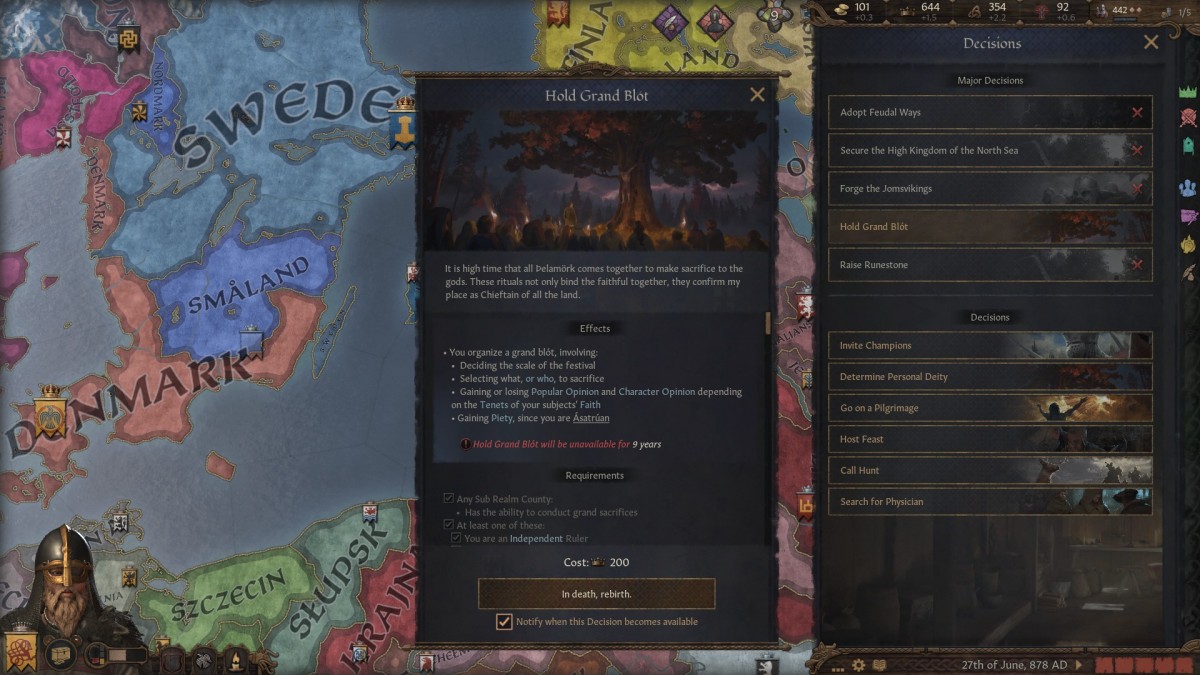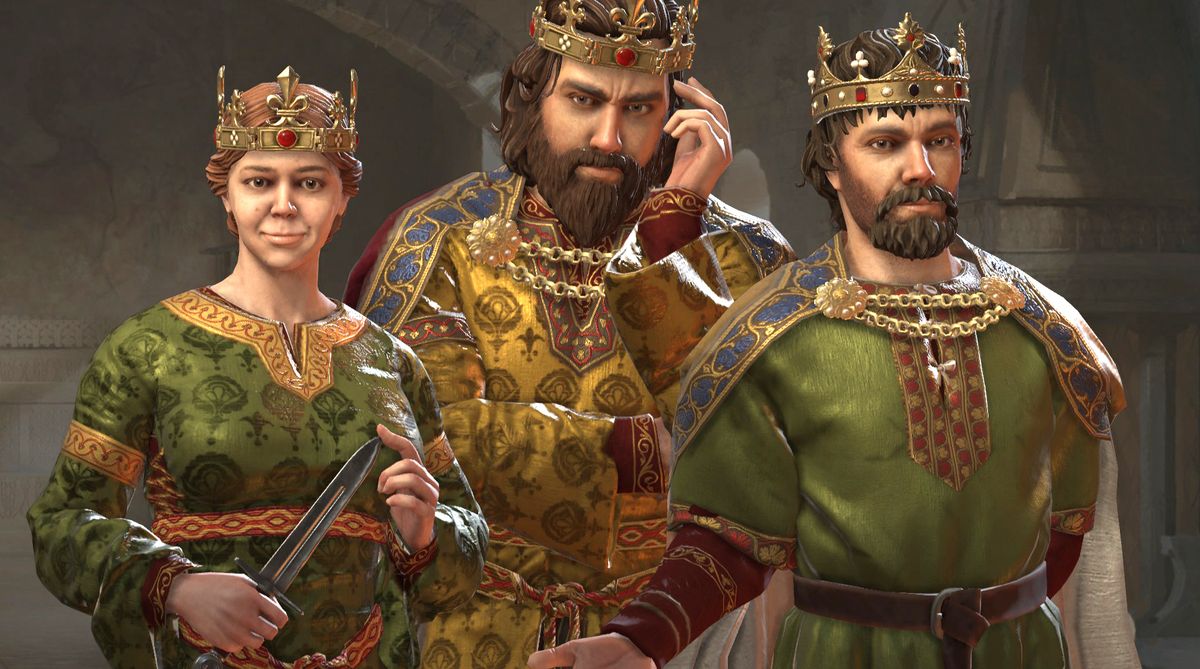
Theodore Roosevelt’s United States, focused on expansion and growth, plays much differently, for instance, than even their physical and temporal neighbor, Wilfrid Laurier’s Canada, with an emphasis on building diplomatic consensus with other civilizations. And yet each Civilization – particularly in VI, the series’ latest entry – is tuned in such a way to reflect a broad snapshot of a people, Empire, or country’s culture, achievements, and goals. The historicity of Civilization is, of course, almost entirely in-name-only, as the scenarios that develop throughout the game go far beyond even the wildest, most absurd alternate history scenarios (to say nothing about recent additions to Civilization VI which add vampires, zombies, and mythological heroes).


#Crusader kings iii art series
I actually credit Civilization with kindling in me my first series interest in history, as playing an enjoyable real-time strategy game led me to learn more about the civilizations and leaders featured within it. Including Civilization on this list is something of a freebie, as its reputation among gamers – even those who aren’t history fiends – is legendary. At the very least, if your main interest is drawing battle lines and pressing go then this is the game for you! It’s clear, too, that there is room for so much more as, like most Paradox games, modders have done incredible things with HoI4’s basic systems to the point where recent official updates seem to be directly inspired by well-known mods. HoI4 seems to have something of an identity crisis where it seems stuck between simulating the Second World War to high degree and indulging a wide variety of alternate history scenarios like others in its genre. Development has been uneven as well, where some recently-updated nations (Spain, for example) have much more enjoyable and robust gameplay than those designed earlier on, despite being central to the conflict (Italy, notoriously). But for a war as complicated and all-encompassing as World War II, along with all other temporally adjacent conflicts, the game’s mechanics are as deep as a puddle, abstracting politics to pie charts and a nation’s economic capabilities to percentages. To its credit, it does that part well, with one of the most intuitive and least micromanaging-dependent military systems in the grand strategy genre (well, except for the naval side of things). Hearts of Iron IV is a World War II strategy game– or perhaps more accurately, a map painting game with a World War II aesthetic. It’s precisely for that reason that, no matter what else I play, I find myself returning to 1066. Unlike many historical simulators, there are few guide rails to nudge the world along its historical course after pressing play, making every game unique, ripe for dynastic role play– and pretty damn chaotic. I might describe it as The Sims With War (in medieval times), as the most enjoyable part is not slamming your abstracted armies into your various enemies, but rather the interactions with the thousands of other rulers in the game, from lowly Barons and Mayors to Kings, Emperors, and the Pope. Crusader Kings has been frequently praised as the closest thing to a Game of Thrones video game available, ignoring some subpar RPGs and mobile games (and, like many Paradox games, has an incredibly robust modding community that makes that description a reality). Unlike nearly all other grand strategy games, you do not play as a nation: rather, you play as as a dynasty, rising and falling to and from thrones from Ireland to India based on your ability to maintain alliances, ensure a stable succession, and keep your enemies at bay.


Paradox Interactive’s Crusader Kings II and III comprise the video game series I have wracked up the most hours in over the years by far. Still, here are some others that I can (mostly) highly recommend and my hopes for the future direction of the historical genre. He has good taste, and so has already covered some of my own most-played ( Europa Universalis IV, even if these days it’s moving toward the Most Disappointing category…) and guilty pleasure ( Anno 1800 ) picks. Two months ago, Bryan shared his thoughts on some of his favorite historical games, ranging from simulations to tabletop.


 0 kommentar(er)
0 kommentar(er)
